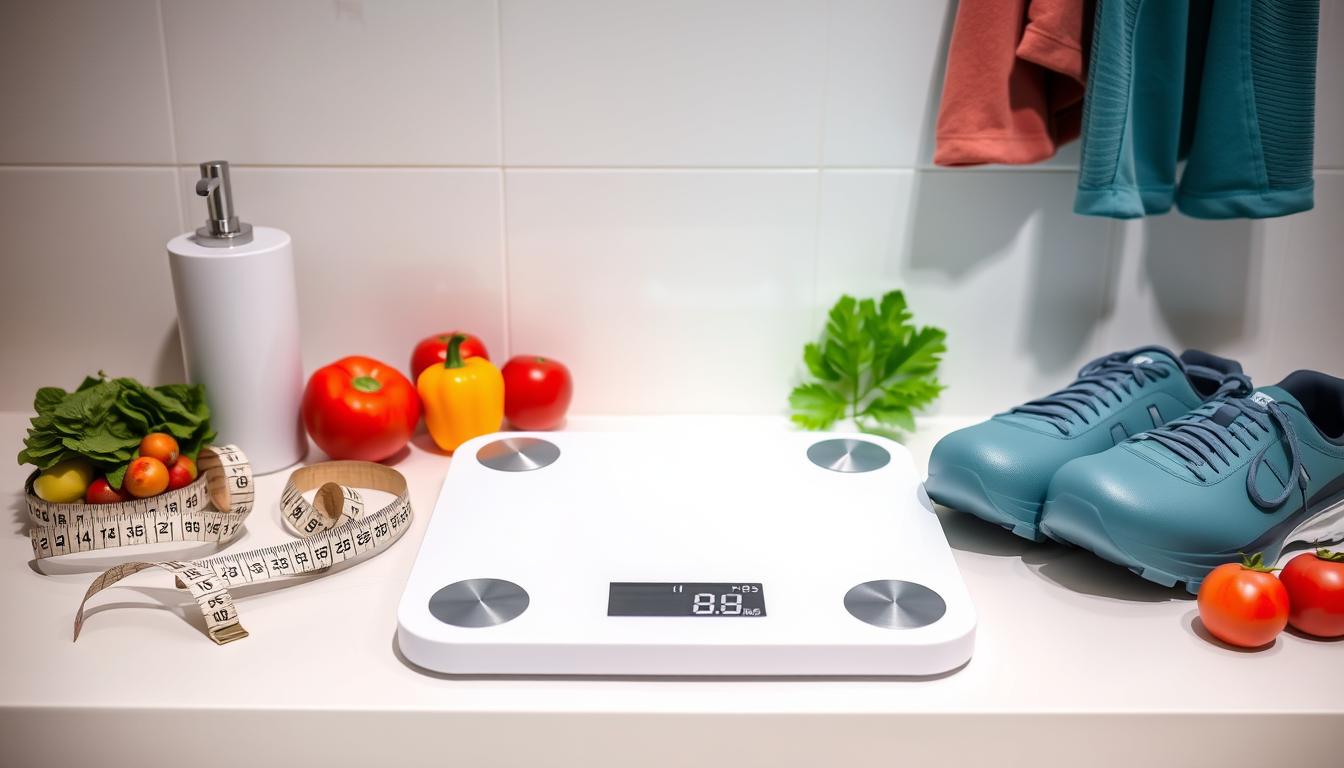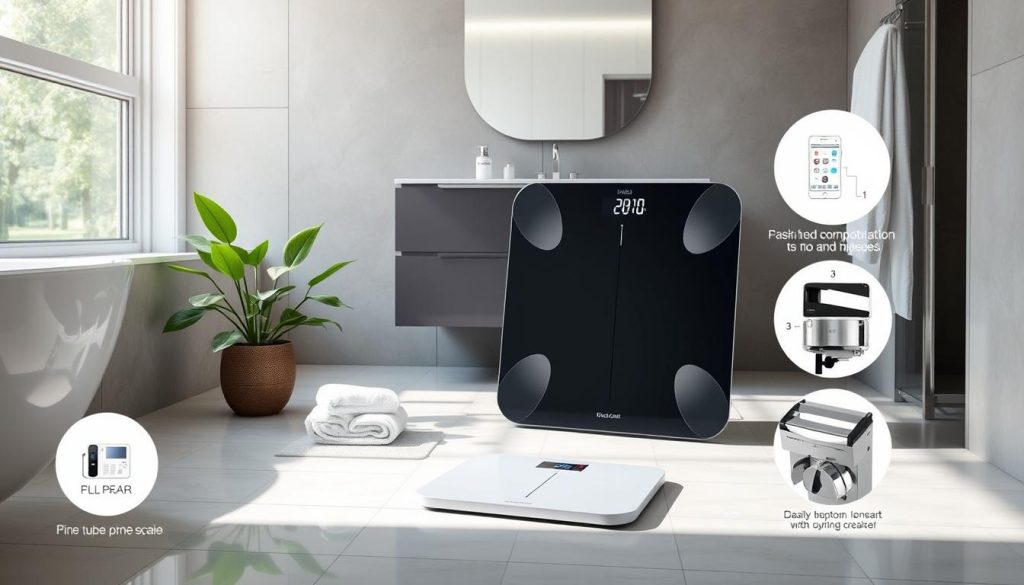
As a dietitian, have you ever wondered what makes a body composition scale accurate and reliable? With many options, picking the right one can be tough. A body composition scale gives important info on body fat, muscle, and bone density. It’s a key tool for dietitians.
But how do you know which scale to trust? This article will cover why body composition analysis is key and guide you in choosing a digital scale. We’ll look at accuracy, features, and ease of use to help you find the best scale.

Body composition analysis is vital for health and fitness. The right scale can make a big difference. By considering accuracy, features, and ease of use, you can find a scale that fits your needs. Whether you’re a dietitian or just interested in body composition, this article is here to assist. So, what makes a body composition scale effective, and how can you pick the right one for your practice?
Understanding Body Composition Analysis and Its Importance
Body composition analysis is key for managing weight. It shows body fat, muscle mass, and more. The right scale gives accurate readings, helping you make smart health choices.
Checking body composition regularly can spot health risks. It also shows if diet and exercise are working. For example, too much body fat raises the risk of diseases like diabetes and heart disease.
There are many ways to measure body composition, like bioelectrical impedance and dual-energy X-ray absorptiometry. Knowing how to use these tools is important. It helps you reach your weight goals and stay healthy.
What Body Composition Actually Measures
Body composition scales track total weight, body fat, muscle, and water. This info is key for spotting health risks. It guides decisions on diet and exercise.
Benefits of Regular Body Composition Monitoring
Monitoring body composition regularly helps track progress. It shows where you need to improve. It also keeps you motivated to stay healthy.
Different Types of Measurement Technologies
Many technologies measure body composition, each with its own strengths and weaknesses. Knowing about these can help you pick the best scale. This ensures accurate analysis of your body composition.
Dietitian Tips for Buying a Scale: Essential Features to Consider
Choosing the right scale is key. As a dietitian, I look for scales that give accurate and reliable readings. It’s important to find a scale that can measure body fat percentage, muscle mass, and body water.
Also, tracking your progress is vital. Features like app connectivity, multi-frequency measurement, and data tracking are essential. For instance, the InBody270 scale can analyze fat mass in different body segments.

Technology matters too. Bioimpedance scales, like the InBody270 and InBody120, use advanced technology. They can measure total body water, skeletal muscle mass, and body fat percentage accurately.
Ultimately, picking the right scale depends on your needs. By looking at scale accuracy tips and body weight monitoring tips, you can make a smart choice. Whether you need a simple scale or one with many features, there’s a wide range of options to help you reach your health goals.
Key Technical Specifications for Accurate Body Analysis
Choosing the right scale for body fat analysis is key. A digital scale shopping guide can help you find the best one. Look for tips on scale accuracy to ensure reliable readings.
Some scales use bioelectrical impedance analysis (BIA) to measure body fat. This method checks how much fat and water you have. For example, the Wyze smart scale offers 12 metrics, including body fat percentage.
Other scales have multi-frequency measurement for better accuracy. Smart features and data tracking help you see your progress. Here are some important factors to consider:
- Weight capacity: Choose a scale that can handle up to 400 lb (181 kg).
- Connectivity options: Opt for a scale with Bluetooth or Wi-Fi for easy tracking.
- Power source: Decide between a scale that uses AAA batteries or has a rechargeable battery.
By looking at these technical specs and following accuracy tips, you can pick the right scale. Use a digital scale shopping guide to make a smart choice.
Making the Most of Your Body Composition Scale Investment
To get the most out of your body composition scale, mix regular weight checks with a healthy diet and exercise. Tracking your body weight and composition helps you see how your lifestyle affects your health and fitness goals. Weight management advice like setting achievable targets and celebrating small wins keeps you motivated.
When picking a body composition scale, look for advanced features like body weight monitoring tips and the ability to save user profiles. This lets you track your progress and spot trends that help with weight management. Also, choose scales that measure body fat percentage, muscle mass, and water balance for a full view of your body composition.
The secret to getting the most from your body composition scale is to be consistent. Choosing the right scale and using it often, along with a balanced diet and exercise, helps you reach your weight goals. This improves your health and well-being.